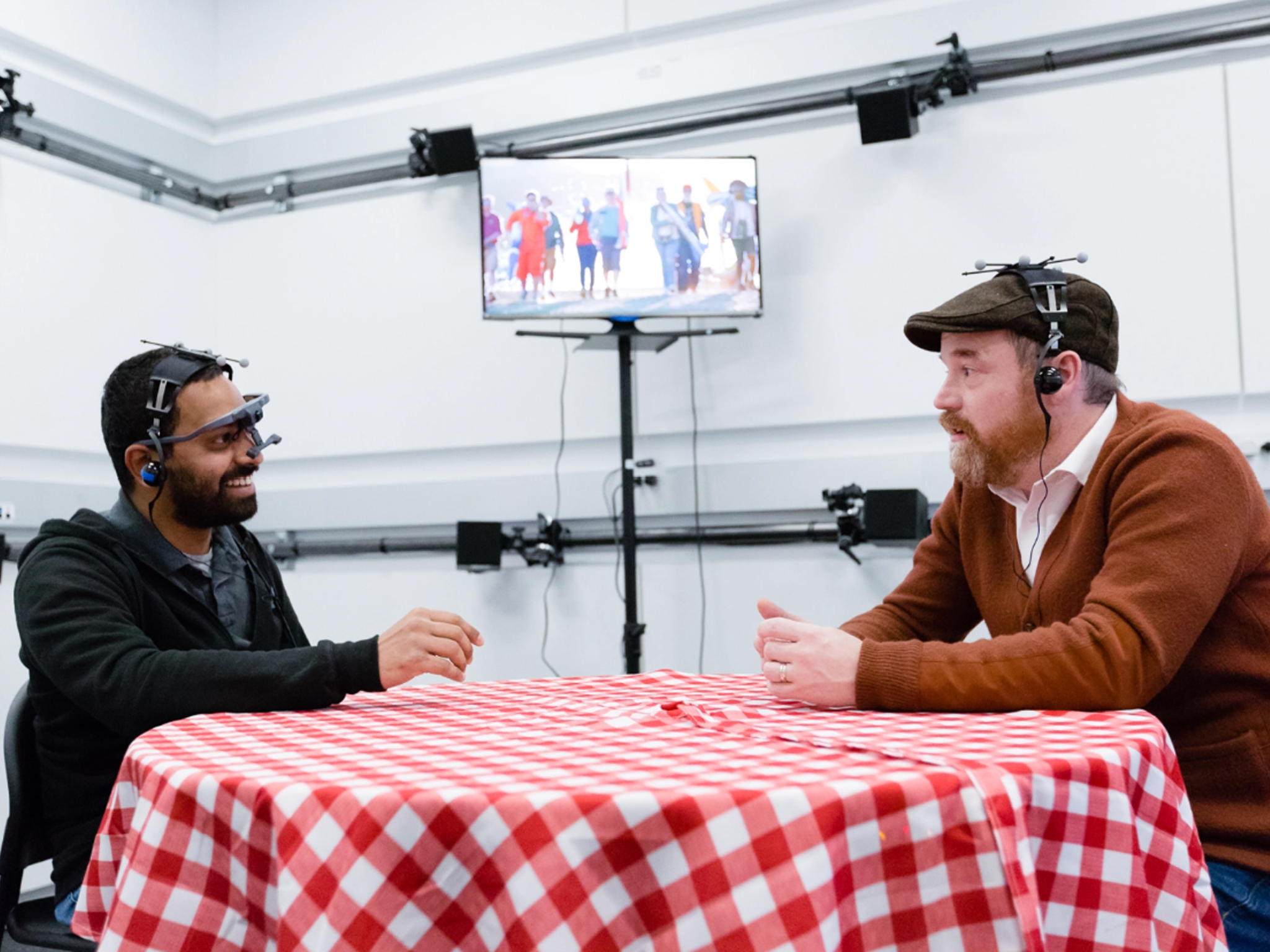Facebook reveals augmented reality glasses that give user 'perceptual superpowers'
The company's glasses turn up the volume from the object the wearer is looking at, and turns down the volume of everything else

Your support helps us to tell the story
From reproductive rights to climate change to Big Tech, The Independent is on the ground when the story is developing. Whether it's investigating the financials of Elon Musk's pro-Trump PAC or producing our latest documentary, 'The A Word', which shines a light on the American women fighting for reproductive rights, we know how important it is to parse out the facts from the messaging.
At such a critical moment in US history, we need reporters on the ground. Your donation allows us to keep sending journalists to speak to both sides of the story.
The Independent is trusted by Americans across the entire political spectrum. And unlike many other quality news outlets, we choose not to lock Americans out of our reporting and analysis with paywalls. We believe quality journalism should be available to everyone, paid for by those who can afford it.
Your support makes all the difference.Facebook has shown a pair of augmented reality glasses that give the wearer “perceptual superpowers” – meaning that it will amplify what the user wants to hear, and lower the volume of background noise.
The wearable comes from Facebook’s Reality Labs Research, which aims to “create virtual sounds that are perceptually indistinguishable from reality and to redefine human hearing”, according to the company’s blog post.
The augmented reality glasses feature headphones and microphones that capture audio around the wearer, and then tracks their head movements.
As the wearer focuses on an object or direction, the glasses enhances the sound from that area and lowers the volume of everything else.
“Eye movement tracking is one of several solutions we’re exploring to understand what a person wants to hear,” said Lisa Brown Jaloza, a Facebook technology communications manager.
Facebook said this technology could be used to protect wearers’ hearing if they work in noisy environments, such as restaurants and bars.
The company also proposed a situation where a person has a pair of glasses on with a special microphone array designed to pick up their voice.
This gives them the ability to speak and be heard even though there may be other sounds playing – in the test, Facebook had two speakers in the room playing music at full volume.
“You can imagine a future in which this technology could also let me speak to my AI assistant quietly, even in a noisy room, giving me more privacy and security, and preventing people nearby from being mistakenly picked up by my assistant or a call," Ms Jaloza wrote.
Although wearing a technology that could potentially constantly listen to the user is a significant privacy concern, Facebook said that it is designing around that.
“The goal is to put guardrails around our innovation to do it responsibly, so we’re already thinking about potential safeguards we can put in place,” said Facebook Research Scientist Manager Ravish Mehra.
“For example, before I can enhance someone’s voice, there could be a protocol in place that my glasses can follow to ask someone else’s glasses for permission.”
The company is also apparently discussing identity verification using the glasses, such as building facial analysis into headsets and glasses to “ensure only you can access the avatar your voice is tied to, from your own device.”
Other companies are also developing augmented reality technology. Google recently purchased smart-glasses company North to “invest in our hardware efforts and ambient computing future.”
“We’re building towards a future where helpfulness is all around you, where all your devices just work together and technology fades into the background,” wrote Google’s Senior Vice President of Devices and Services Rick Osterloh.
Apple also purchased Spaces, a virtual-reality startup that lets users have meetings in the digital world. The company has been rumoured to be developing augmented reality glasses for some time.
In an interview with The Independent, Apple CEO Tim Cook said that he does not believe “anything will be untouched” by augmented reality, and that shopping will be changed “entirely”.
Join our commenting forum
Join thought-provoking conversations, follow other Independent readers and see their replies
Comments